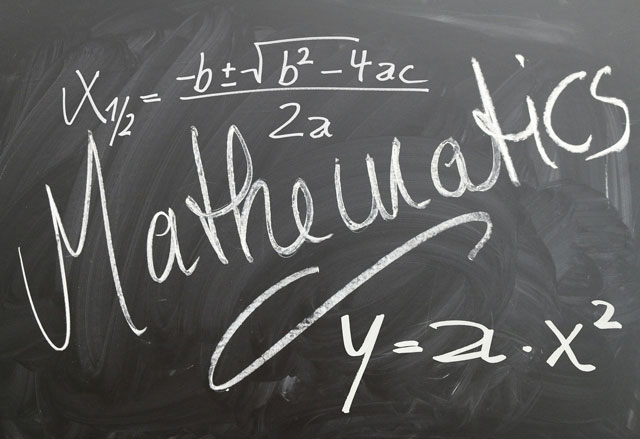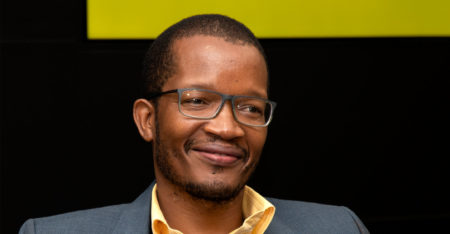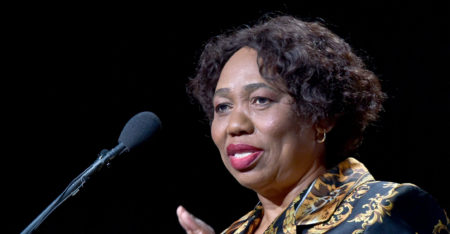
Recent figures on mathematics in schools show that poor South African pupils might face a bleak future because the country’s education system is still not treating them equally, according to Equal Education.
Figures in a parliamentary response by basic education minister Angie Motshekga reveal that at least one in four schools around the country does not offer mathematics for grades 10 to 12.
According to these figures from the annual school survey in 2013, the worst statistics were in Mpumalanga, where 56,3% of schools did not offer the subject. In the province’s district of Bohlabela, 92,2% of schools did not offer maths.
“Basically, this is not a mistake. It is not an accident that a large number of schools are not teaching maths. It is a direct result of a narrow and single-minded pressure for schools to increase the matric pass rate at all costs,” Equal Education treasurer Doron Isaacs said.
“It is compulsory to either do maths or maths literacy. So these learners are doing maths literacy, which is basic arithmetic. The two are not comparable. Schools either push kids out or they stop offering maths altogether as a way of increasing the matric rate. This results in a new form of Bantu education where the richer kids do maths and the poorer kids do maths literacy.”
This severely limited what the pupils could study or what work they could do after school, even if they had wanted to learn maths.
The DA, which had asked Motshekga the question, said on Thursday that every one of the top skills listed in the 100 scarce skills list required pupils to have done maths.
In the parliamentary response, the education department cited a lack of qualified maths teachers as one of the reasons why the subject was not offered at some schools.
It also stated that many rural schools had too few pupils taking maths and had made arrangements with larger, urban schools for pupils to receive maths classes there.
Isaacs said the shortage of teachers formed part of the reason. However, the push by the department for higher matric rates was working in opposition to government’s call for more learners to study maths and science.
A recent report by the Organisation for Economic Co-operation and Development ranked South African schoolchildren second from the bottom in the world in terms of maths and science.
A World Economic Forum report from 2014 placed South Africa last out of a list of 148 countries in terms of maths and science education.
Patrick Barmby, a senior lecturer in maths education at the University of Witwatersrand, said that while people often had different ideas of what subjects were the most important to teach, there was a general agreement that maths and English literacy were key subjects to help South Africa lessen its skills shortage.
“We can’t build on other subjects if we can’t read or write, while maths is key for technical subjects,” he said. “Without those, you don’t get people who can read [or do] technical reports or business outcomes. For the country as a whole, we need scientifically literate students.”
He said the reasons behind why South Africa kept falling short in achieving its goals in pushing for more maths and science in schools was “complex”.
“The language issue is a huge issue. Many of my colleagues are studying the impact of language [on teaching].”
He said pupils needed to be taught maths in languages in which they were comfortable. “What a lot of learners struggle with … is the languages the [maths] questions are phrased in.”
Another factor was the “huge variation” in the socioeconomic status of the pupils.
“Some come from backgrounds … [where parents] have more experience or support with maths, where they help with homework or play games. There are a lot of households where that can’t happen, where parents have to work all the time or the learners themselves are looking after their younger siblings.”
The quality of teachers and teaching also played a role. “If we are failing to improve the quality of teachers, this will impact the next generation,” he said.
“The other issue is looking at what training is taking place.”
He said tertiary institutions which provided training needed to be held to account for the quality of teaching. “To fill shortage of maths teachers in schools, the profession needs to be elevated and made more desirable to students,” he said.
“In places like Canada, teacher training courses are oversubscribed. This is because teachers are held in high esteem [there] — they are on par with doctors and lawyers.
“There needs to be a fundamental shift in how we recruit teachers. With maths teachers we might have to look at additional incentives, or higher salaries, like what is being looked at in other countries.
“So we need to look at the quality of support for teachers.” — News24




